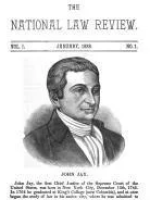On July 29th, the Eighth Circuit Court of Appeals confirmed that FLSA’s overtime and minimum wage protections apply to undocumented workers. A group of six workers sued their employers at Jerusalem Café in Kansas City, Missouri alleging they willfully failed to pay minimum wage and overtime in accordance with the FLSA. Between 2007 and 2010, these workers all worked over 60 hours per week in the café, and some earning as little as $3.90 per hour.
After a jury trial in November 2011, the jury found in the workers’ favor, awarding them their unpaid FLSA wages, liquidated damages, legal fees and expenses amounting to over $440,000. On appeal, the Eighth Circuit affirmed this stating “employers who unlawfully hire unauthorized aliens must otherwise comply with federal employment laws.” The Court likened this reasoning to the 1931 conviction of Al Capone for failure to pay taxes on illicit income.
The court began its examination with the plain text of the FLSA: “Every employer shall pay to each of his employees . . . wages at the [minimum wage rate].”[1] Additionally, FLSA explicitly prohibits employees from working more than forty hours per week “unless such employee receives compensation for his employment in excess of the hours above specified at a rate not less than one and one-half times the regular rate at which he is employed.”[2] The court found that FLSA’s definitions of “employer” and “employee” clearly includes unauthorized workers: “the term ‘employee’ means any individual employed by an employer.”[3] FLSA does contain specific exceptions to this definition of employee, does not preclude unauthorized workers from being employees. The Court found that nothing in the Act indicates Congress’ intent to exclude unauthorized aliens from its broad definition of “employee”.
The Secretary of Labor filed an amicus brief with the Eighth Circuit citing the Departments longstanding interpretation that the FLSA includes all workers regardless of immigration status. The brief argues that this is consistent with the statutory intent of the FLSA:
“[E]nforcing the FLSA on behalf of all workers regardless of immigration status is essential to achieving the purposes of the Act to protect workers from substandard working conditions, to reduce unfair competition for law-abiding employers, and to spread work and reduce unemployment by requiring employers to pay overtime compensation.”
The Eighth Circuit agreed with the Secretary’s position because it furthers the Congressional intent of both the FLSA and federal immigration policy. One major concern is the effect that undocumented workers have on the wages of those able to be legally employed. Mandating that all employers provides all employees minimum wage and overtime compensation de-incentivizes the hiring of undocumented workers and attempts to insure fair working conditions and wages.
The full text of the decision can be found here.
[1] 29 U.S.C. § 206(a) (emphasis added).
[2] Id. at § 207(a)(1).
[3] Id. at § 203(e)(1).




 />i
/>i

